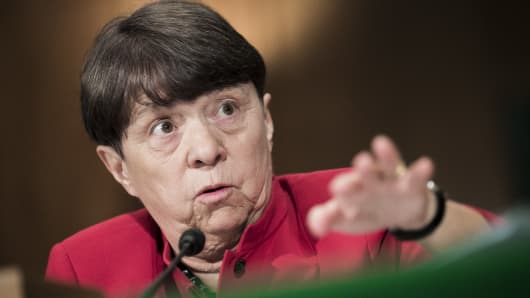The SEC concluded its meeting with stock exchanges to discuss the NASDAQ trading snafu by giving the exchanges a list of items it wanted them to "fill in and complete" and return to them in the next 60 days.
I'm simplifying, but the SEC wants the exchanges to:
- provide an action plan to make sure the public data network that carries the quotes and trades for NASDAQ and the NYSE work properly, and that there are clear standards for testing them;
- create a "kill switch" that will allow exchanges to shut down trading when the technology fails;
- make clearer rules on how trades are broken and how stocks are reopened following trading halts.
How would the SEC enforce these standards? There has been some discussion around implementing new rules from the SEC, known as Reg SCI, which would require that the technology used in all the exchanges met uniform standards and were continuously tested, and provide certain notifications in the event of systems disruptions and other events.
But exchanges are pushing back against what they view as onerous regulations, and in the meantime there may be simpler and more elegant way to address many of these issues: for each exchange to write new rules separately.
Each exchange has its own rules. Under the circumstances, it would be easier--and less onerous--tor each exchange to propose amending their rules, which would be approved by the SEC.
The SEC, of course, has to make sure the exchanges are enforcing their own rules. But this is a lighter load to lift than if the SEC would propose its own rules.
Will it fix the problem? We are never going to get rid of technology glitches--but it's a step in the right direction. We'll get more in 60 days when we see what changes the exchanges are proposing.
And Reg SCI is not dead: I am hopeful the SEC will come back in the coming months with some way to implement uniform standards without creating a costly regulatory mess for the exchanges. We don't need more lawyers, we need technology that works.
Ultimately, though, I believe that the exchanges have under invested in technology infrastructure. They will likely have to spend more.
Where will they get the money, given how lousy the stock trading business has become? Raise the fees! Costs can be shared with the broader investment community. I don't see any other way.










